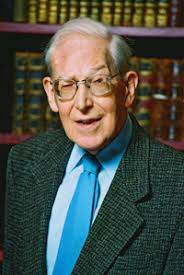Calvinism, More Than 5 Points
 It would not be correct simply to equate Calvinism with the “five points.”…In the first place, Calvinism is something much broader than the “five points” indicate. Calvinism is a whole world-view, stemming from a clear vision of God as the whole world’s Maker and King. Calvinism is the consistent endeavor to acknowledge the Creator as Lord, working all things after the counsel of His will. Calvinism is a theocentric way of thinking about all life under the direction and control of God’s own Word. Calvinism, in other words, is the theology of the Bible viewed from the perspective of the Bible–the God-centered outlook which sees the Creator as the source, and means, and end, of everything that is, both in nature and in grace. Calvinism is thus theism (belief in God as the ground of all things), religion (dependence on God as the giver of all things), and evangelicalism (trust in God through Christ for all things), all in their purest and most highly developed form. And Calvinism is a unified philosophy of history which sees the whole diversity of processes and events that take place in god’s world as no more, and no less, than the outworking of His preordained plan for His creatures and His church. The five points assert no more than that God is sovereign in saving the individual, but Calvinism, as such, is concerned with the much broader assertion that He is sovereign everywhere. - J.I. Packer
It would not be correct simply to equate Calvinism with the “five points.”…In the first place, Calvinism is something much broader than the “five points” indicate. Calvinism is a whole world-view, stemming from a clear vision of God as the whole world’s Maker and King. Calvinism is the consistent endeavor to acknowledge the Creator as Lord, working all things after the counsel of His will. Calvinism is a theocentric way of thinking about all life under the direction and control of God’s own Word. Calvinism, in other words, is the theology of the Bible viewed from the perspective of the Bible–the God-centered outlook which sees the Creator as the source, and means, and end, of everything that is, both in nature and in grace. Calvinism is thus theism (belief in God as the ground of all things), religion (dependence on God as the giver of all things), and evangelicalism (trust in God through Christ for all things), all in their purest and most highly developed form. And Calvinism is a unified philosophy of history which sees the whole diversity of processes and events that take place in god’s world as no more, and no less, than the outworking of His preordained plan for His creatures and His church. The five points assert no more than that God is sovereign in saving the individual, but Calvinism, as such, is concerned with the much broader assertion that He is sovereign everywhere. - J.I. Packer
No comments:
Post a Comment